The Newsletter – 17.03.2019
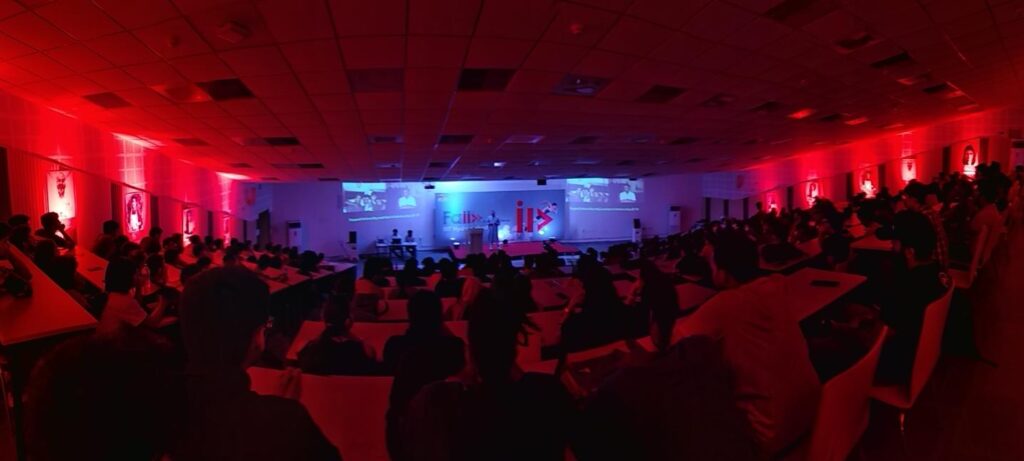
Editorial: Introducing The Newsletter by Ping!
Zubair Abid
Hey!
We’re happy to announce the launch of a new initiative by Ping! – The Newsletter. The Newsletter is a student run, open to all newspaper. It is a running archive of all happening in the college – from a student point of view.
Starting off, we hope to put this out on Thursdays on a fortnightly basis. We begin with two what we hope will be regular columns: Club Reports and Lab Insights. Club Reports is a place for clubs or any student body to write about themselves, their work in recent times, and possible plans they may have for the future. Lab Insights is an initiative for students to know the kind of work that goes on in the labs at IIIT. It is, we feel, important, especially given how many students have to pick labs by their second year with no knowledge of the work they carry out.
Other columns are also being planned, including a satirical take on Humans of New York. If you’re interested, or want to propose a new section, join us on Thursday!
Naturally, there are some questions you may have that we shall attempt to answer.
Why a newsletter?
To do what the magazine cannot. Published fortnightly, the newsletter should be better poised to address time-sensitive issues than the magazine currently is, and the shorter report length appeals to those daunted by the size of articles the magazine puts out.
Doesn’t the college already have an official newsletter?
Yes, it does. But the primary focus of that is on Institute level events, and news that makes the college look good – it is, after all, an official blog used by the Institute for PR. This newsletter can focus on issues affecting the students directly. You can think of it as complementary to what the Institute offers, not a competing publication.
We conclude on an optimistic note as we begin this next phase in Ping!’s journey. Newsletters and magazines have never been a standout lasting feature in IIIT’s history, and here we see a fresh canvas that just needs a fresh perspective and lots of enthusiasm.
The Frivolous Humour Club
Mahathi Vempati
The newest club on campus, FHC — The Frivolous Humorous Club — recently conducted two events. The first was a workshop conducted on 29th January, aimed at introducing students to the world of comedy and the structure of a stand-up comedy set. Around thirty students attended it, and around five people even ended up performing on stage.

The second was an open mic held at the amphitheatre on 14th February, where again 4-5 people performed to an audience of about a hundred. The event was largely organised by Harish Kumar Datla, an MTech student, who anchored and performed as well. The attenders comprised mainly of MTech and first year students.
‘For the time being, we will just have open mics just amongst college students, but soon, we hope to invite comedians from outside to perform’ says Nikhil Bishnoi, the coordinator of the club.
Mess troubles
Mahathi Vempati
According to an email sent by the mess committee last month, the messes currently face losses and there have been talks about hiking the mess fees by around Rs. 2000-4000 a year. A lot of this loss comes from giving free snacks to students who have monthly registered in the various messes. By doing away with the free snacks, it is possible to both counter the hike, and to reduce the cost of the snacks for those who buy it, says mess com. A google form was sent out to collect student opinion on the issue.
Club Reports: Report on Fail Talks – E-Cell
Date: 2 March 2019. Amogh Tiwari, E-Cell IIIT Hyderabad
E-Cell organised Fail Talks on 2nd March. The initiative was started at the Massachusetts Institute of Technology, and this was the first time it has reached Asia. The concept behind the initiative being: inspiring resilience by sharing the failure stories of well known persons. It was conducted at Himalaya 205, which was specially lit up for the occasion.
The speaker panel consisted of Aditi Awasthi, the CEO of Embibe, Dutee Chand, Silver Medalist at Asian Games, Viiveck Verma, CSO of Srinivasa Farms, Ajay Siotra, Masterchef India, top 16 contestant and Pankhuri Gidwani, Miss Grand India. The event was presided over by Prof. Ramesh Loganathan.
The speakers shared the many struggles which they went through in life, from not having monetary support, to leading a team revolting against you, to having to quit your job as a senior member of your organisation because the organisation stopped its operations in a particular country. The speakers stressed upon the fact that success is not a one off thing, that a person attains overnight but, is a cumulative result of working hard and not giving up.
The event witnessed an unusually large audience of IIIT students (read: much greater than 30) that occupied all of the 250+ capacity room.

Club Reports is a section where clubs and other student bodies of IIIT can write about their club activities in recent times. If you want your club’s activities to be featured in the column, reach out to us at Facebook, or send an email to ping@students.iiit.ac.in, or reach out to our editors.
Lab Insights: A (brief) summary of LTRC
Ujwal Narayan, Zubair Abid
Computational Linguistics is understanding and modelling language computationally. It is the intersection between computer science and linguistics and is the science behind Siri, Alexa, Google Translate etc. It comprises Natural Language Generation and Natural Language Understanding.
Language Technologies Research Centre (LTRC) is our group of labs that are dedicated to the study of such. It comprises three labs found on the first (British) floor of KCIS: Machine Translation and Natural Language Processing Lab (MT-NLP), Information Retrieval and Extraction Lab (IREL), and Speech Processing Lab (SPL). Anusaaraka is also a part of LTRC, but we shall not focus on that today.

MT-NLP Lab focuses on the study of Indian Languages and development of tools and methods to analyse them computationally. Research is varied, with ongoing work in humour detection, analysing sentiment of text in various domains with more specific work in hate speech and the like, detection of “events” in text, summarizing text with extractive and abstractive methods, parsing dependencies in text (kind of like the ‘karakas’ taught in Hindi Grammar), and Adversarial learning and generative networks, among others. Work is also carried out to make computers emulate human understanding of language, such as in modelling languages in a computationally viable way, vector representation of text (think Word2Vec), work in sentence embeddings, Coreference resolution (a way to detect what references in text refer to).
Professors that work here include Dipti M Sharma, Radhika Mamidi, Manish Srivastava, Rajeev Sangal, Peter Scharf (visiting).
IREL deals with, among other things, extracting information from enormous volumes of data and summarizing texts. Current projects at the lab include
- Fake news detection
- Automated Science Journalism
- Bias detection in classification algorithms
- Biomedical information extraction
- Natural language understanding for search queries
- Style transfer in text
- Summarization
Professors working here are Vasudeva Varma, Ponnurangam Kumaraguru (visiting),
SPL is concerned with processing and understanding speech. Work is carried out in
- Multilingual Speech Recognition for low resource languages
- Emotion Recognition using speech
- Language Identification
- Works on Speech Disorders
, among others.
Professors Anil K. Vuppala and Suryakanth V. Gangashetty work in the lab.
The authors thank Alok Debnath, Bakhtiyar Syed, and Utkarsh Mehrotra for their contributions
Lab Insights is a column that intends to give students a brief insight into the labs of IIIT and the work they do. If you want your lab to be featured in the column, reach out to us at Facebook, or send an email to ping@students.iiit.ac.in, or reach out to our editors.

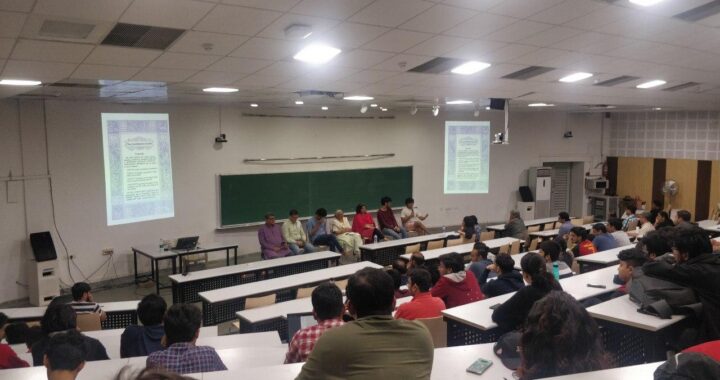 Covering the CAA-NRC Panel Discussion
Covering the CAA-NRC Panel Discussion 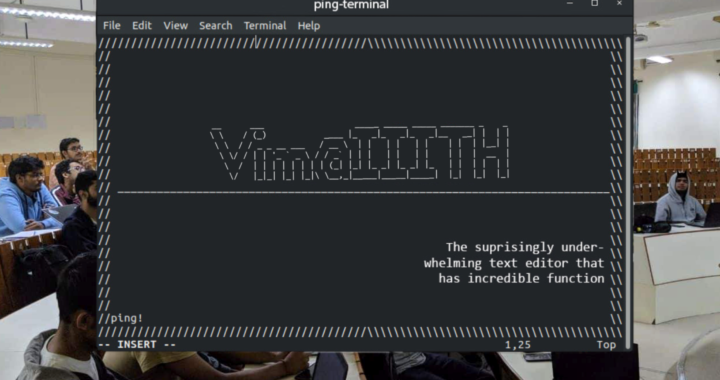 Vim Club has its first session !
Vim Club has its first session !  Hyderabad’s Water Shortage
Hyderabad’s Water Shortage  Interhouse Cricket Matches Underway
Interhouse Cricket Matches Underway  IIIT’s Area 51 Raid
IIIT’s Area 51 Raid 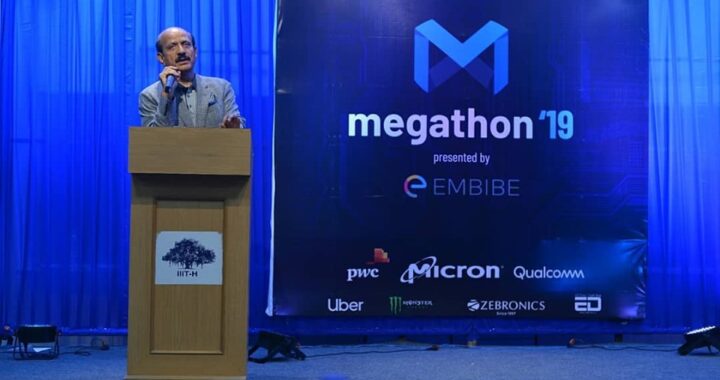 Megathon 2019
Megathon 2019 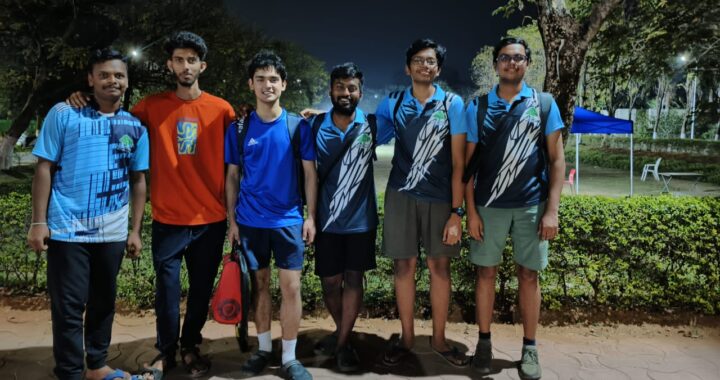 A perspective on sports in IIIT
A perspective on sports in IIIT 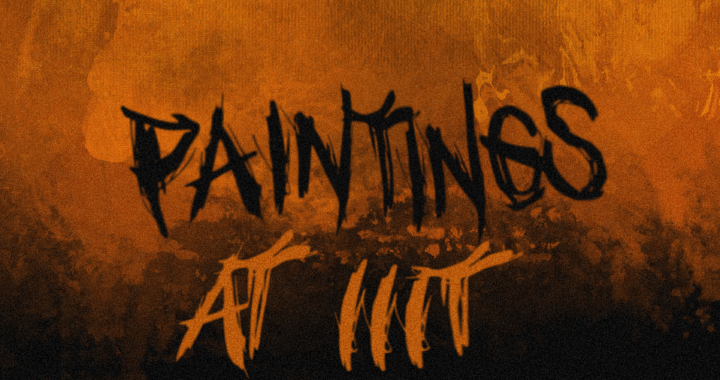 Paintings of IIIT
Paintings of IIIT  The Tale of Jagruti
The Tale of Jagruti  Cleaning up the Mess?
Cleaning up the Mess?